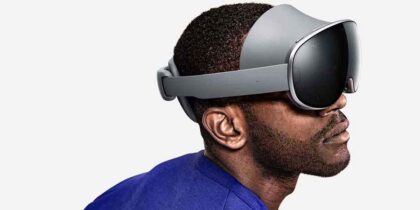Let’s say you shop for groceries at big box store on Tuesday mornings. As you navigate the aisles, you might notice associates picking and packing pickup orders into bins. Odds are, they’re working that shift because they want to, not because they have to—they choose the shifts and tasks that fit their lives. Schedule flexibility, in fact, has become a cornerstone of a healthy, productive workforce, because companies have realized that when workers can plan their days, weeks and months with confidence, they thrive.
And when workers are happy, they perform better and provide a more satisfying experience to customers—which drives growth. But providing flexibility starts with providing technology. That’s why several retailers have given their associates simple tools like smartphones, pre-loaded with apps that allow them to view shifts, swap them with coworkers or pick up shifts in different departments.
In a traditional top-down model, by contrast, retailers dictating rigid hours and assignments are likely to see overextended managers, disengaged employees and high turnover. Flexible, employee-controlled scheduling, however, has been shown to help attract talent, minimize over- and understaffing, and also provides the company with the data it needs for strategic workforce management and the ability to respond quickly to changing needs on a local or regional level.
In other words, using technology to provide autonomy over scheduling and areas of interests isn’t just a perk—it’s a performance enhancer.
Tech-driven autonomy delivers value
Research by the World Economic Forum found that 77% of retail workers prefer flexible scheduling and 55% actively seek flexible shift work. And a Forrester Total Economic Impact study found that giving employees power over their schedules can save managers five hours of time per week. In a 10,000-person organization, that translates to $4.2m in savings over three years.
Retailers see the benefits. One major U.S. retailer has a self-scheduling tool in which workers can swap shifts with each other, pick up additional hours or even work in different departments based on training programs or their interests. The company’s managers save a full day—eight hours—per week on scheduling that they instead spend on coaching and engaging with staff. And early data showed an 11% drop in absenteeism and a 14% drop in turnover.
Granted, a large organization such as this also understands the importance of guiding associates from declining roles to emerging opportunities, using technology to help people develop new skills. That’s why it’s easy for associates to use company-provided technology to engage with learning modules, or to take on tasks in other areas that they’re curious about.
When retail associates have ownership over their schedules and development, it boosts morale and builds trust. It also delivers enhanced results for the business.
Engagement, retention and growth
Retailers using mobile scheduling tools and predictive workforce planning have seen measurable results.
Two grocery chains in the Midwest both use mobile platforms that let associates swap shifts and choose hours that fit their lives. That flexibility has led to lower turnover and better engagement. And when employees are more engaged, customers notice. Companies offering flexible scheduling report up to 29% higher customer satisfaction, 15% higher loyalty and 32% more positive interactions, according to MyShyft. And higher customer satisfaction, for any retailer, is the key driver of growth.
Retail success starts with the people on the floor. When they have the tools and trust to shape their workday, it pays dividends.
Explore how Samsung’s mobile technology provides the tools needed to deliver meaningful experiences for retail associates. Contact your account manager or request to speak to an industry expert.








